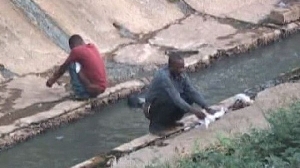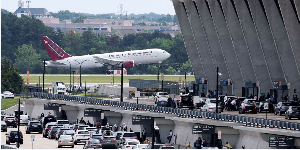Despite concerted efforts to address water, sanitation, and hygiene (WASH) issues in Ghana, recent data from the Ghana Statistical Service (GSS) paints a concerning picture.
The GSS has revealed that 25% of households, or one in every four, in the country still practice open defecation. while Sustainable Development Goal (SDG) 6.2 targets an end to global open defecation by 2030, Ghana remains on a precarious trajectory with a significant rural-urban disparity.
The 2022 Demographic and Health Survey (DHS) indicates that open defecation is more prevalent in rural areas, with 39% of households practicing it compared to 12% in urban areas. This figure for urban areas still exceeds the targeted 0% for 2030.
The World Health Organisation (WHO) and UNICEF estimate that nearly 1.8 billion people globally engage in open defecation or use inadequate sanitary facilities.
In 2023, the UN in Ghana urged increased public finance and private sector investment in WASH, describing the country's sanitation situation as dire.
Only 25% of Ghanaians have access to basic sanitary services, with 57% relying on shared or public facilities and 18% still practicing open defecation. Poor sanitation poses severe public health risks, emphasising the urgent need for interventions.
The 2022 DHS which aligns with the UN's estimate reports that only 24% of Ghanaians have access to basic sanitary services, falling well below the National Medium-Term Development Policy Framework Basic Sanitation Services Targets for 2022 of 39%.
Only the Greater Accra Region surpasses the national target, boasting 40% access while the Savannah Region lags at a mere 11%.
Alarming figures from the 2022 DHS reveal that 44% of wastewater flows untreated into nature, posing severe health and environmental threats. Moreover, 47% of households lack appropriate management of household excreta, further contributing to sanitation challenges.
While Ghana achieves 84% population coverage for basic drinking water services, a relatively high figure close to the global 90% target disparities persist.
Approximately 22% of rural households still rely on surface water and unimproved services for drinking water. Notably, the North East Region lags with only 43% of households having basic drinking water services.
WHO estimates from 2019 reveal a grim reality, with 7,653 deaths in Ghana attributed to WASH-related illnesses.
This equates to 21 people per day or almost one preventable death every hour, underscoring the urgent need for comprehensive WASH interventions.
Health News of Monday, 19 February 2024
Source: classfmonline.com













